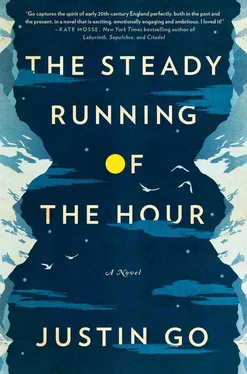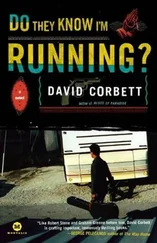Sept 14
City Night Line, Düsseldorf — Berlin.
In April 1924 Imogen was in Berlin. Or at least Ashley thought she was. But why was she there? How much contact did she have with Ashley, or with Eleanor and Charlotte?
I’d better find something in Berlin.
It’s still dark when the train pulls into the station. The sign reads BERLIN HAUPTBAHNHOF. I step through the doors and look up at the soaring glass roof, the white face of the platform clock. Four twenty-eight in the morning. I eat breakfast in the deserted food court. Then I check my bag at the left-luggage counter and ride the S-Bahn to a hostel in Mitte, the central district of Berlin. The day is cold and clear. After a week in rural France, Berlin seems vast and sprawling: the women watering flowerboxes on high balconies, the streets signs painted in bold sans-serif type, the sunrise glinting from the soaring orb of the television tower.
The girl at the youth hostel lets me into my room to drop off my bag and take a shower. I ride the U-Bahn to the main post office on Joachimstaler Straβe, leaning against the glass door as I wait for it to open. At eight o’clock an employee in a blue dress shirt and striped tie unlocks the door and waves me in. I ask apologetically if anyone speaks English. I’m passed between several employees, told again and again that my question falls under the jurisdiction of someone else, or that I’ll need to make an appointment with another office. Finally I’m told to wait for a manager.
Minutes later the gray-haired manager shuffles to the counter. He has the same uniform as the other workers, but he wears suspenders and his shirt is badly wrinkled. He does not look pleased to see me.
— Impossible, he says in English. You cannot claim another person’s poste restante.
— I don’t want to claim it. I just want to know how long poste restante is usually kept.
— Two weeks for German mail. One month for international mail.
— What happens if it’s not collected?
— It is returned to sender.
— If there’s no return address?
— Then it is undeliverable mail. It is destroyed.
— There are no exceptions to this?
The manager grimaces. — I doubt it. Maybe if you tell me what you need I can try to help you.
I wipe my hand over my face and try to explain my case as reasonably as possible. The manager listens to my story without expression. He opens a door behind the counter and beckons me in.
— Come to my office. I want to speak to you.
I follow him through a labyrinth of low-ceilinged hallways to his office, a windowless room overflowing with mounds of curling paper. He sits down behind a steel desk and asks me to have a seat.
— I work on cases of missing mail having value. And I also work with the post museum. So you are very lucky to have found me.
The manager assumes an expression of immense gravity. He says he is taking the time to explain these matters to me because I am a foreigner and he knows things are different in my own country. In Europe public institutions have an important role in society, he tells me, and the postal service is no exception, for in Germany public service is a respectable occupation and not merely a final asylum for the lazy and incompetent. He allows that I am only a visitor in this country, but a visitor in any foreign country must respect its customs, and in this country it is very rude to obstruct the business of an important public institution on account of my own private whim.
It is because I seem an intelligent and reasonable young man, the manager continues, that I ought to know better than to waste the time of himself and his employees. Common sense alone should have dictated the answer to my question; it did not require the molesting of one postal employee, let alone five agents and a manager, to determine that unclaimed poste restante was not kept for eighty years. He finishes by explaining that in this country such institutions as this one are required to be transparent, and for this reason he will now listen to whatever queries I might have.
— But I didn’t make up the story. It’s all true.
The manager smiles. He takes a form off a filing rack and places it before me. He apologizes that they don’t have this form in English, directing me to the blanks on the page.
— Here you write the sender’s name. Here the name of the receiver. Here you write poste restante . Here you write your name, address, e-mail and telephone number. You sign here.
The manager hands me a ballpoint pen and leans back in his chair, explaining that in order for public institutions to be fair there must be regularity in the disposal of their services. It is for this reason, he says, that both legitimate inquiries and those of doubtful value must be impartially processed. It is not the civil servant’s role to pass judgment. He urges me to fill out this form, for although he may have reservations about my inquiry, he will make certain that every effort is made to fulfill it.
I fill out the form and hand it back to the manager. He looks at it and smiles darkly.
— Tristan Campbell, he reads. But Tristan, where is your Isolde?
He puts the form in another rack on his desk and swivels his chair back to his computer. I leave the office without saying good-bye.

27 February 1924
Theobald’s Road
Bloomsbury, Central London
Ashley carries an umbrella in his right hand, but in spite of the rain he does not open it. He walks quickly, the pavement slick beneath his leather-soled shoes.
He sees a figure ahead of him sitting against a building and he moves to cross the street, waiting on the curb for a motorcar to pass. Suddenly Ashley turns and walks up to the crippled man. His crutches are leaned against the wall and one of his legs is amputated below the knee, the trouser leg folded and speared with a large safety pin. Beside him is a tin full of matchboxes for sale.
Ashley feels in his coat pocket for a coin. His finger touches the folded sheet of the telegram and it gives him a surge of pleasure.
— Where were you wounded?
The man cocks his hat back with his thumb to look at Ashley, but the rain comes at his face.
— Ypres. Bleeding hole called Château Wood.
Ashley finds a half-crown in his other pocket and sets it in the man’s palm. He turns onto Bedford Row, the water rushing in the gutter beside him. The duckboards , he thinks. The planks of wood, the stilts strung over the muddy torrents of Château Wood . Ashley stifles this thought, but he feels it more in the stifling so he lets it loose again.
He walks along the row of brick town houses, entering the white-columned doorway at number 18. The front office bustles with hushed activity: rows of clerks copying sheets of foolscap, a young woman clattering away at a typewriter. A bald man in a bow tie and waistcoat hovers over one of the clerks. His eyebrows spring up when he sees Ashley.
— Mr. Walsingham. Good morning. Mr. Twyning is expecting you—
One of the clerks takes Ashley’s mackintosh and hat and umbrella. Ashley follows the bald man up a flight of stairs. They pass a padded telephone box on the landing and enter Twyning’s office, a half-lit chamber with damask wallpaper and tall mahogany bookcases. Papers are cluttered everywhere, books and ledgers stacked in piles on the floor and mantelpiece.
Twyning rises from his desk to shake Ashley’s hand. He wears a three-piece suit and a neat mustache. His hair is parted with shining pomade.
— Sit down, sit down. We’ve been at sixes and sevens since Monday, but I daresay we’ve succeeded. I’ve reviewed the papers and they look first-rate, given the complexities. Mr. Hotchkin, have the copies and originals brought up, if you please.
Читать дальше













